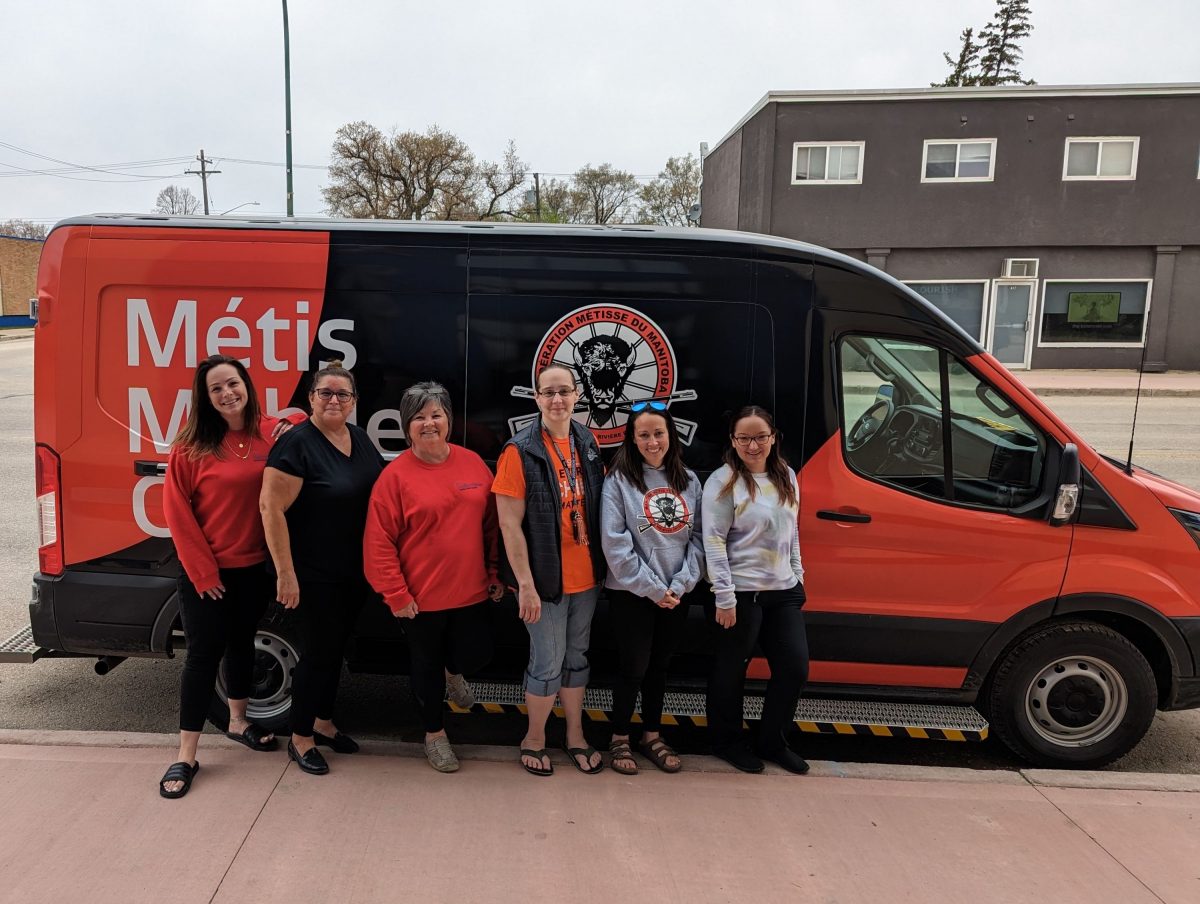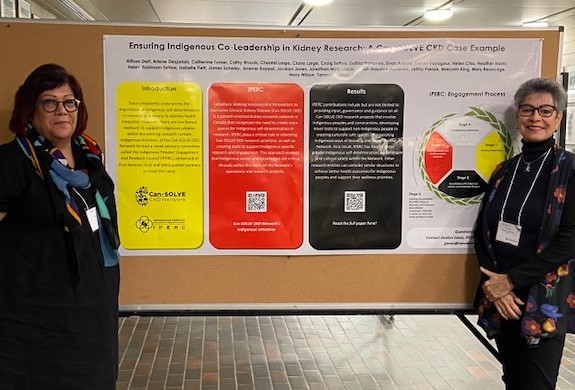
Mobile clinics that visit Métis communities are ‘beacons of hope’ offering culturally appropriate diabetes testing and care, a research presenter said.// Photo: Manitoba Métis Federation
Indigenous perspectives vital to reconciliation in research, speakers say
Engaging with Indigenous communities and incorporating Indigenous perspectives into research and health care were strong themes at this year’s Indigenous Health Research Symposium at UM.
The 11th annual gathering took place on Nov. 28 and 29 on the Bannatyne campus, hosted by Ongomiizwin – Research, part of the Indigenous Institute of Health and Healing in the Rady Faculty of Health Sciences. The overall theme was “Reconciliation in Research.”
In one presentation, Leslie Mattes of the Manitoba Métis Federation spoke about two mobile clinics that are visiting Red River Métis communities as a pilot engagement initiative.
The clinic teams, who travel in specially outfitted vans, offer diabetes risk assessment and point-of-care testing, as well as diabetes foot care. The project reached more than 700 Métis citizens – including many in northern and remote communities – between August 2022 and September 2023.
“These mobile clinics … are beacons of hope offering timely assessments, immediate test results and expert foot-care services,” Mattes said. “We’re delivering culturally appropriate care. All the staff is Métis. We hear how [community members] are more comfortable coming to us than going to see anybody else.”

Arlene Desjarlais (L) and Cathy Woods
Another presentation focused on the Indigenous Peoples’ Engagement and Research Council, which was formed by Indigenous members of Can-SOLVE CKD, a national patient-oriented research network focused on chronic kidney disease.
The co-presenters, Cathy Woods and Arlene Desjarlais, serve as Indigenous patient partners in research. Woods, a member of Naicatchewenin First Nation, was treated for a kidney disorder. Desjarlais, who is Métis, lost her husband to chronic kidney disease.
The council, they said, informs Can-SOLVE CKD research priorities, creates tools to support Indigenous-specific research and engagement, and ensures that Indigenous voices and knowledges are critical threads within the fabric of Can-SOLVE.
“Can-SOLVE has taken Indigenous voices and made us heard,” Desjarlais said.
Members of a research team led by Dr. Natalie Riediger, associate professor of food and human nutritional sciences, presented research related to a proposed tax on sugar-sweetened beverages.
A “sin tax” on sugary beverages, such as pop and energy drinks, is supported by many health organizations. Riediger is leading a multi-part research project, centred on Indigenous voices and perspectives, on the acceptability of such a tax among Indigenous populations.
In Indigenous communities, the researchers noted, pop is often consumed because clean drinking water is unavailable and beverages such as milk are extremely expensive.
The team’s interviews with Indigenous adults in three Manitoba communities found that many compared their sugary drink consumption to an addiction and said the drinks help them cope with stress, boredom and poverty. High rates of food insecurity and past trauma among Indigenous people help to explain addictive-like consumption, the researchers said.
“Solely focusing on sugar-sweetened beverage intake as a problem area where Indigenous people are making poor health choices is oversimplifying.… Instead, it’s crucial that we consider health disparities … within the broader context of historical, social and structural factors,” said research assistant Loreena Kuijper, a member of Sheshatshiu Innu First Nation.
Myra Tait, a lawyer and taxation expert who is a member of Berens River First Nation, said the proposed tax is paternalistic. “It sure doesn’t look like reconciliation,” Tait said. “We cannot impose a simplistic solution to a very complex problem.”
The symposium also included a panel discussion on supporting Indigenous people with addictions in pregnancy. Panel leader Danielle Hart, who is Indigenous and recently completed her master’s in community health sciences at the Max Rady College of Medicine, focused her research on substance use in pregnancy.
The panelists said pregnant women who have addictions are commonly subjected to severe stigma in the health-care system, to the point that some avoid seeking care. Many physicians, they said, lack accurate, evidence-based information about substance-involved pregnancy and respond with stigmatizing opinion, rather than appropriate care.
All medical students should be educated about trauma-informed care and harm reduction, the panelists said, and all pregnant people should be treated with dignity.
Elder Geraldine (Gramma) Shingoose, a Saulteaux woman and community activist, called on doctors to “let go of their biases, assumptions and stereotypes of pregnant women that use.”
Dodie Jordan, executive director of Ka Ni Kanichihk, said Indigenous communities have their own experts on appropriate care, and all care providers should take a harm-reduction approach. “If our health-care professionals and our doctors understand harm reduction … it changes the way they do their work with people,” she said.






